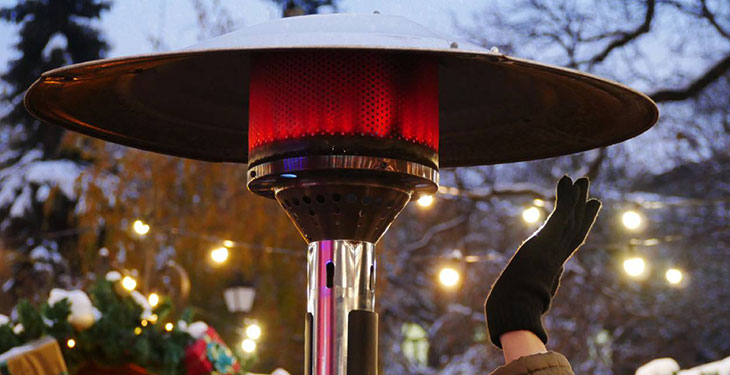Restaurant owners in Germany soon could be given financial assistance by the government to purchase outdoor heaters that allow them to keep their businesses open during the winter and comply with safety measures to keep the spread of the coronavirus in check, business daily Handelsblatt reports, according to CLEW.
The outdoor heaters, dubbed “heating mushrooms” (Heizpilze) in German and mostly powered by natural gas, are infamous for their substantial greenhouse gas emissions and, over the past years, have been banned in many German cities.
Thomas Bareiß, state secretary in the economy ministry (BMWi) said “during the autumn and winter months, a functioning outdoor service is part of the solution for our gastronomic industry”. In order to help the “severely shaken” hospitality sector, “the government not only wants to allow outdoor heaters but also facilitate their acquisition as part of our current interim aid payments”, Bareiß said.
He added that fighting the pandemic would require “pragmatic solutions” and no “ideological phantom debates” about heating emissions. In addition to heaters, the ministry said it would also co-fund tents and other equipment to allow restaurant owners to move part of their business outdoors.
Environment minister Svenja Schulze said outdoor heaters would be an acceptable but temporary solution to assist restaurants in weathering the pandemic winter.
“If using heating mushrooms can help to restart the gastronomic industry after the shutdown and thus to secure its long-term survival, we shouldn’t be dogmatic here,” Schulze said according to an article on Fuldainfo. Likewise, the minister said she could understand those who switch from using public transport to cars during the pandemic. “Who could argue with that as infection numbers are on the rise?” she asked. However, Schulze added she is confident the coronavirus will not do lasting damage to climate action. “We managed to avert this danger. Just look at the recovery package we agreed on,” Schulze said, stressing that the package has earmarked 50 billion euro in stimulus investments for climate-friendly projects.
Manufacturers of gas-fired outdoor heaters, also called patio heaters, have seen demand spike over the last months, as restaurant owners seek ways to comply with COVID-19 safety rules. According to environmental protection group Friends of the Earth Germany (BUND), patio heaters emit up to 3.5 kilograms of CO2 per hour at maximum output. Calculations by the German Environment Agency (UBA) found that more efficient heaters with emissions of about two kilograms of CO2 per hour would still emit as much during a standard week as a car would on a 600 kilometre trip.
